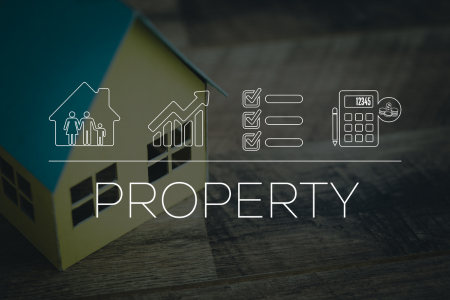Does Rezoning Increase Property Value in Texas?
Rezoning in Texas can potentially increase property values by changing land use and zoning regulations, allowing for higher real estate appreciation and investment opportunities. Learn how property rezoning benefits Southern Hills Homebuyers by affecting marketability and property demand significantly.
TABLE OF CONTENTS
- How Does Rezoning Affect Property Tax in Texas?
- Understanding Texas Zoning Regulations
- The Role of Zoning in Texas Real Estate Market
- Is Rezoning Beneficial for Land Developers in Texas?
- Zoning Challenges for Texas Homebuyers
- Exploring the Process of Rezoning in Texas
- Impacts of Rezoning on Neighborhoods in Texas
- Potential Advantages of Residential Rezoning
- The Influence of Zoning Changes on Commercial Properties
- How Do Zoning Changes Affect Commercial Property Utilization?
- Is Commercial Space More Marketable After Rezoning?
- What Types of Businesses Benefit Most from Zoning Changes?
- Examining Texas Zoning Law Compliance
- How Do Property Owners Make Sure Zoning Laws Are Followed?
- What Penalties Exist for Non-Compliance with Zoning Laws?
- Frequently Asked Questions
How Does Rezoning Affect Property Tax in Texas?
What is the Impact of Rezoning on Property Tax Bills?
Rezoning in Texas can change property tax bills a lot. When rezoning happens, the property’s use might change, which can affect its value. If the value goes up, taxes usually go up too. For example:
- Property Values: Changing from residential to commercial zoning can raise property values because of more economic opportunities.
- Economic Impact: Higher property values mean higher taxes, which can impact local community finances.
Knowing these effects helps property owners plan for potential changes in their tax bills due to rezoning.
Can Rezoning Lead to Increased Assessments?

Yes, rezoning can increase property assessments in Texas. When zoning changes, appraisals are often done to check its new value. This increase in real estate worth can lead to:
- Higher Property Values: Properties with new zoning may become more valuable, leading to a higher assessment.
- Increased Assessments: As property values increase, so do the taxes, showing the property’s new worth.
Texas property owners should be ready for these changes as they directly influence property tax responsibilities.
How Do Texas Property Tax Rates Adjust with Zoning Changes?
Property tax rates in Texas may change due to zoning changes. Zoning laws control these and depend on different factors:
- Zoning Changes: Tax rates might be updated to match the property’s new type when zoning changes.
- Rezoning Impact: Changes in zoning can lead to new local tax rate structures, affecting total tax amounts.
These changes ensure tax rates fit current land use and property values, offering fair taxation across different zones.
Understanding Texas Zoning Regulations
What are the Key Zoning Laws in Texas?
Texas zoning laws manage how land is used and developed. Important rules include:
- Land Use Designations: State what activities are allowed on a property, like residential or commercial.
- Texas Zoning Ordinance: Gives specific rules within each area to guide development and growth.
How are Zoning Laws Enforced Across Different Texas Counties?
In Texas, counties enforce zoning laws to ensure local rules are followed. Enforcement includes:
- Compliance Checks: Local authorities regularly inspect properties to check for compliance.
- Jurisdictional Oversight: Each county applies its rules based on its needs and plans.
These efforts help manage growth and protect property values in different counties.
Can Zoning Regulations Vary by Texas Municipality?
Yes, zoning rules can differ by municipality in Texas. Factors causing these differences include:
- Local Jurisdiction: Each area sets its own zoning rules to meet specific community goals.
- Zoning Variance: Municipalities might allow exceptions to fit special property needs or neighborhood features.
Knowing these differences is key to understanding local zoning and making smart property choices.
The Role of Zoning in Texas Real Estate Market
Zoning regulations are important for the real estate market in Texas. They decide how land is used, which affects property values and economic growth in the state. Knowing about zoning changes is key for anyone interested in Texas real estate, whether you are a homebuyer or an investor.
How Does Zoning Influence Property Demand in Texas?
Zoning regulations have a big impact on property demand in Texas. They control what types of buildings can be built in certain areas, affecting both urban development and community growth. Changes in zoning can turn empty lands into new neighborhoods, boosting property demand.
What is the Relationship Between Zoning and Property Supply?
In Texas, zoning regulations affect property supply by controlling where homes and businesses can be built. Urban planning, like rezoning neighborhoods, can open up new areas for building, which affects the number of available properties. Zoning determines which lands can be developed, influencing how quickly neighborhoods can expand and support more people.
Can Zoning Regulations Affect Real Estate Investment Opportunities?
Yes, zoning regulations can significantly impact real estate investment opportunities in Texas. Investors look for areas with good zoning laws that allow high-value properties.
Is Rezoning Beneficial for Land Developers in Texas?
Rezoning can offer significant benefits for land developers in Texas. It allows for changes in land use, which can raise property value and match current real estate trends. By changing land to more profitable uses, developers can get better returns on their investments and meet the needs of growing urban areas.
Why Do Developers Seek Rezoning?
To meet changing urban planning needs and improve land use in Texas. Successful rezoning can increase property value, helping developers get more from their land. This can turn underused areas into active communities.
Are There Risks Associated with Rezoning for Developers?
Developers may need more certainty in real estate investment due to potential opposition from the community or economic impacts. Requests for zoning variances can lead to delays or increased costs. Developers need to consider these risks alongside the possible benefits.
What Benefits Can Developers Gain from Rezoning in Texas?
Rezoning can benefit developers, such as property appreciation and better economic development. In Texas, urban development through rezoning can create new chances for housing and commercial projects. This can lead to higher profits and a stronger position in the real estate market.
Zoning Challenges for Texas Homebuyers
Texas homebuyers need to understand zoning regulations as they search for a home. These laws can influence housing prices and limit choices, so buyers need to know about zoning laws in Texas.
What Common Zoning Issues Do Homebuyers Face in Texas?
Homebuyers commonly face zoning issues, such as limitations on a property’s use and development rules. These could affect future developments and property values. By being aware of zoning regulations, buyers can spot potential problems and make better decisions while acquiring the home of their dreams.
How Can Zoning Restrictions Limit Home Improvement Plans?
Zoning laws may present problems for home renovation projects. They may limit additions or changes, which may impact overall planning and property taxes. Homeowners should research the local zoning restrictions to see what improvements are allowed and avoid unexpected issues.
Exploring the Process of Rezoning in Texas
Rezoning is changing a piece of land’s allowed uses in Texas. Property owners who want to supervise this process and consider possible zoning modifications must understand the standards and steps.
What Steps are Involved in Rezoning a Property?

To start rezoning a property in Texas, property owners need to do these things:
- Research Zoning Regulations: Look at the current zoning rules for your property to see how they affect future development options.
- Submit a Rezoning Request: Send a formal rezoning request to the local authorities. This should include details about the proposed change and any necessary documents.
- Public Hearing and Review: The request will be reviewed through public hearings where community members can express their opinions.
- Decision by Local Authorities: After the hearings, local planning bodies will decide based on community impact and alignment with the comprehensive plan.
If you would like to sell your house fast for cash, reach out to Southern Hills Home Buyers. We provide an easy and smooth selling process; We purchase your property on a timeline that works best for you. There’s no need to worry about repairs, renovations, hosting open houses, or incurring expensive fees—our service is completely free. Contact us today at (214) 225-3042 to get started. If you want to know more about us, check out our How it Works page.
How Long Does the Rezoning Process Typically Take in Texas?
The time it takes to rezone a property in Texas depends on several things:
- Complexity of the Request: Simple changes are quicker, while complex ones take longer.
- Local Jurisdiction Procedures: Each area in Texas has its procedures and timelines for processing requests.
- Public Involvement: A lot of public input or opposition can make the process take longer.
Generally, the rezoning process can take a few months to over a year.
What Documentation is Required for a Rezoning Request?
When you request a rezoning in Texas, you need to submit several documents:
- Proposed Zoning Plans, documents showing how to use the property after rezoning.
- Proposed Zoning Plans, documents that show how you plan to use the property after rezoning.
- Compliance with Zoning Laws, proof that the proposed changes fit with existing laws and regulations.
- Justification for Rezoning, explain why the rezoning is needed, backed up by data or market analysis.
Impacts of Rezoning on Neighborhoods in Texas
Rezoning can have big effects on neighborhoods and can change how communities work and allocate resources.
Can Rezoning Lead to Changes in Neighborhood Dynamics?
Rezoning can change neighborhoods in different ways:
- Population Density: Zoning changes might allow more people to live in an area, affecting social interactions.
- Community Character: Adding commercial areas in residential zones can change the feel of a neighborhood.
- Economic Opportunities: New businesses can help the economy but might bring more traffic or noise too.
How Might Rezoning Affect Community Resources and Infrastructure?
Rezoning can impact infrastructure and community resources by:
- Increased Demand on Services: More residents could put pressure on schools, hospitals, and emergency services.
- Infrastructure Development: Rezoning can lead to new roads, utilities, and transportation options.
- Environmental Considerations: Changes in land use might affect green spaces and the environment.
Are Neighborhood Residents Typically Consulted During Rezoning Decisions?
Residents are often involved in rezoning decisions through:
- Public Hearings: These meetings let people share their thoughts on proposed zoning changes.
- Feedback Solicitations: Governments may seek public input through surveys or meetings.
Potential Advantages of Residential Rezoning
Changing the zoning of residential properties can provide benefits like increased property value and real estate opportunities.
Does Residential Rezoning Often Result in Value Appreciation?
Rezoning can increase property values because:
- Enhanced Land Use and new zoning can allow more profitable uses, increasing demand.
- Market Perception: properties in newly zoned areas can become more appealing to buyers.
What Factors Contribute to Increased Property Values after Rezoning?
Several factors can raise property values after rezoning:
- Economic Development: As an area grows economically, property values typically rise.
- Real Estate Market Trends: Positive market conditions can boost the effects of rezoning on values.
How Can Owners Leverage New Zoning Designations for Financial Gain?
Property owners can benefit financially from new zoning designations by:
- Investing in Development: Building or expanding existing structures to increase income.
- Selling at a Premium: Properties can be sold at higher prices due to greater demand or potential.
The Influence of Zoning Changes on Commercial Properties
Zoning changes can significantly affect commercial properties by changing their use and marketability. These changes in zoning laws dictate what activities are allowed on a property, impacting its value and appeal to buyers or tenants. Property owners and investors need to understand these effects to maximize the business potential of their commercial space.
How Do Zoning Changes Affect Commercial Property Utilization?

Zoning laws control what kinds of activities can occur on land, directly influencing commercial property use. Property owners must evaluate how these changes will affect utilization patterns when zoning changes occur. For example, changing from residential to commercial zoning could allow more diverse land uses, potentially increasing the land’s value and usefulness.
Is Commercial Space More Marketable After Rezoning?
Rezoning can increase the marketability and value of commercial space by matching a property’s use to market demand. It provides several benefits, including expanding the area’s appeal and attracting businesses looking for specific qualities, both of which increase demand.
What Types of Businesses Benefit Most from Zoning Changes?
Zoning changes may open up new options in the real estate market. Businesses that usually gain the most from specific zoning include retail and hotels. These changes could make previously unreachable locations accessible, allowing for expansion or new initiatives tailored to the industry’s needs.
Examining Texas Zoning Law Compliance
Texas property owners need to know how to abide by zoning regulations. There are rules specific to each place that need to be adhered to. Respecting zoning regulations guarantees seamless real estate transactions and helps prevent legal problems.
How Do Property Owners Make Sure Zoning Laws Are Followed?

By performing routine inspections and keeping up with local regulations, property owners guarantee adherence to zoning regulations. They could:
- Speak with zoning specialists
- Consultation with the local planning authorities is necessary.
- Examine the plans and zoning documents.
In addition to preventing fines, compliance ensures the property is used correctly.
What Penalties Exist for Non-Compliance with Zoning Laws?
Not following zoning laws can lead to serious penalties, such as:
- Fines
- Cease and desist orders
- Legal actions
Knowing about these enforcement actions helps property owners reduce risks and operate legally.
Frequently Asked Questions
Can rezoning land in Texas lead to increased property value?
Yes, rezoning land in Texas can greatly increase its value. If land is changed for commercial or higher-density residential use, it often attracts developers and investors. This can raise property prices since commercial land is typically worth more per square foot.
What impacts does rezoning have on house prices in Texas neighborhoods?
Rezoning can greatly affect house prices in Texas neighborhoods. It can make an area more attractive by allowing new developments and amenities, which can raise home values. However, it’s important to consider the possibility of higher property taxes and service charges.
Is rezoning a good strategy for increasing a property’s value in Texas?
Yes, rezoning can be a good way to increase a property’s value. It allows for new development, which usually leads to higher property values. It’s important to understand zoning laws, and talking to experts about planning and zoning commissions in Texas can help.
How does the process of rezoning affect agricultural land in Texas?
Changing agricultural land in Texas to residential or commercial can increase its value. Developers might be interested in such land for projects like solar farms. It’s important to look at factors like cost, tax effects, and local zoning rules before making changes.
Are there risks associated with rezoning in Texas cities like Austin or Houston?
Rezoning in cities like Austin or Houston can have risks, such as opposition from neighbors and higher taxes. It’s important to balance these risks against benefits like better infrastructure and increased real estate value in Texas.
How can homeowners in Texas benefit from rezoning?
Homeowners in Texas can benefit from rezoning by seeing an increase in their home’s value. They may also enjoy better roads, utilities, and neighborhood features. Property values usually go up after successful rezoning, which is good for homeowners looking for growth.
What role does the planning and zoning commission play in Texas rezoning?
The planning and zoning commission in Texas is key in checking rezoning requests. They make sure changes fit the area’s bigger plan, balancing community and development needs. Knowing their decisions helps achieve good results.
How does rezoning impact taxes and service charges for properties in Texas?
Rezoning can increase property taxes and service charges because the land’s value goes up. While this seems bad, the increased property value and development options can be worth the cost. It’s a good idea to talk to tax professionals to handle these changes well.
Key Insights
- Rezoning can significantly increase property values if the land is changed to commercial use, which is worth more per square foot. This approach often leads to higher value in Austin neighborhoods and other areas of Texas.
- Understanding changes in zoning laws is essential for any homebuyer who wants to boost their property value. Knowing about Texas real estate appreciation and municipal zoning helps make wise choices.
- Redevelopment usually increases property values. Things like proximity to facilities, rules about density, and inspection needs can affect a property’s worth.
- After rezoning, taxes and service charges might go up, but the increase in land value can make up for these costs. This strategy is common in Texas real estate investment.
- Talking to the Planning and Zoning Commission of Texas can give helpful tips on how rezoning requests work, saving time and effort.
- Commercially zoned real estate is often seen as more appealing to investors, raising its market value. This is a smart way to improve property values in Texas.
- Rezoning has many benefits, like increased property value and real estate appreciation. However, changes in zoning laws can also negatively affect nearby homes if not done right.
- If you’re researching Texas land and its future, it’s crucial to understand comprehensive plans and zoning variances. This understanding makes property transactions easier.
- When considering rezoning, consider health, safety, and environmental issues as they impact property value.
- Stay updated on news and changes in municipal zoning, and work with experts to ensure you’re making smart decisions for your real estate investments.
Southern Hills Home Buyers is a trusted local business specializing in purchasing homes for cash across Texas. We provide a simple and stress-free solution for homeowners in all types of situations. Our efficient services have helped many individuals experience a smooth and convenient home-selling process. If you’re looking for a quick and reliable alternative to the traditional real estate market, call us at (214) 225-3042 or complete our short form to get started. Have questions? We would love to answer all your real estate concerns! Visit our testimonials to see feedback from our satisfied clients. Our services are available throughout Texas, including Dallas, Plano, Fort Worth, Houston, Corpus Christi, and many other cities!
Get Cash For Your Texas House Today
We buy houses in Texas without the hassle and red tape. Get your no-obligation cash offer for your home and just be done. Selling in as-is condition has never been easier.

